“Come to the Light” is also the name of the information campaign that started in Ukraine on August 1. Its goal is to reduce the level of shadow employment, raise citizens’ awareness of their labor rights, and form a culture of legal work. The campaign is being conducted in conditions of martial law, when every hryvnia of taxes is of critical importance for the state’s defense capability, the functioning of the healthcare system, education, social protection, and support for internally displaced persons. One of the main obstacles in this context remains shadow employment, which weakens the state’s financial capacity, restricts citizens’ rights, and creates unequal conditions of competition in the labor market.
Journalists often have to deal with this phenomenon. And, unfortunately, not only in their professional activities, but also in their personal lives. Because the war has made the situation on the labor market more difficult, and unscrupulous employers, as it is not a shame to say, are taking advantage of this. Therefore, the topic proposed for discussion by the chief state inspector of the labor department of the southern region of the inspection department in the Zaporizhzhia Region, Valentyna Oseledchyk, was very interesting for the media. In particular, the inspector focused their attention on the concepts of “declared” and “undeclared” work.
Declared work is the paid activity of an employee within the framework of an employment contract, when the employer notifies the State Tax Service of their hiring, and also pays the employee an official salary not less than the minimum, and pays the Unified Social Fee (SSF) for them.
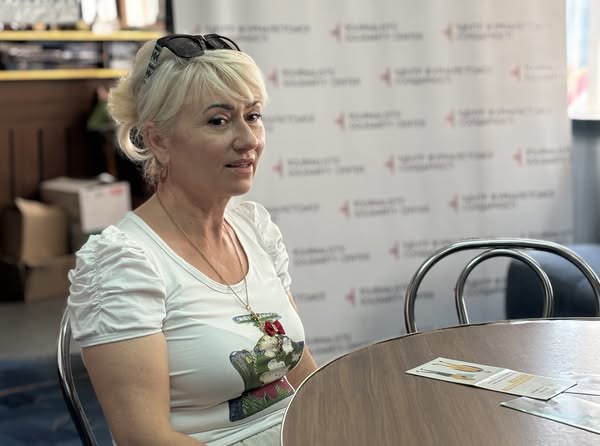
Undeclared work is a legal paid activity that is not fully or partially registered in accordance with the requirements of the law. For example, instead of an employment contract, the employer concluded a civil law agreement with the employee or pays part of the salary “in an envelope.” Undeclared work deprives employees of the right to sick leave and vacation pay; social insurance; proper protection in the event of an accident or dismissal; pensionable service and future payments.
“Penalties are provided for employers who have not concluded an employment contract with an employee; currently, they amount to UAH 80,000 for one undeclared employee. Suppose the situation does not change within two years and the employee continues to work unofficially. In that case, the employer must pay a fine of UAH 240,000 for him,” noted Valentyna Oseledchyk. “So, concluding employment contracts with employees is profitable, because employers receive many advantages. In particular, by creating new jobs, they can receive partial compensation for the social security contributions, salaries, and training costs of employees. And also – not to incur losses due to accidents, production stops, staff turnover, or damage to business reputation. And first of all, employers are not threatened with fines for employees whose work is undeclared,” emphasized the speaker.
It should be noted that in the Zaporizhzhia Region alone, according to a specialist, the scale of informal employment reaches about 30% of the economy. In general, Ukraine loses about UAH 100 billion per year from undeclared work. In times of war, when every resource is extremely important, paying taxes becomes not just a duty but a matter of national importance. The state directs all its resources to supporting the Armed Forces of Ukraine (AFU), social programs, and restoring critical infrastructure.
“Today at the training we considered a very important and relevant topic,” said Nataliya Stina, the editor of the Chervonyi Promin newspaper. “And this will help us professionally cover cases of violations of labor legislation, in particular, illegal work. In addition, we received answers to other problems in this area. For example, clarification of changes to labor legislation in force during the martial law period. In particular, how to properly draw up documents on the suspension of an enterprise, or the reinstatement of an employee who left due to the security situation and was absent from work for several months. We are sincerely grateful to the specialists of the State Labor Service for a meaningful and professional conversation that helps to increase our legal awareness,” the journalist emphasized.
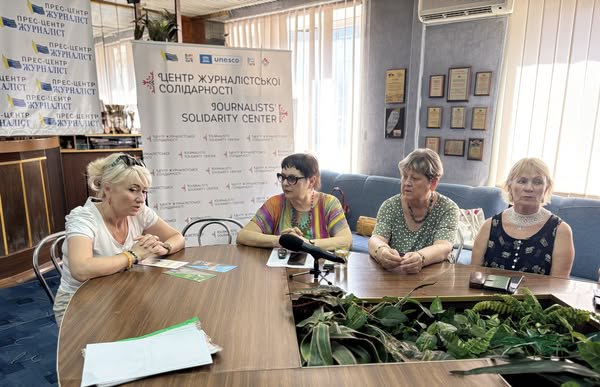
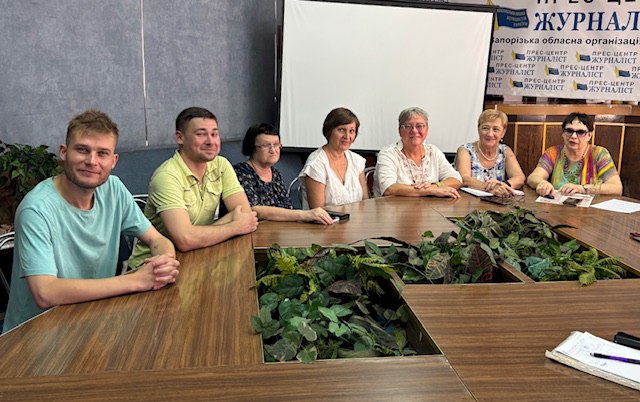
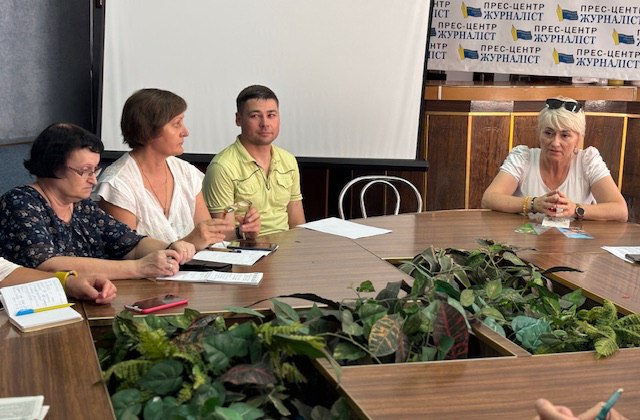
The network of Journalists’ Solidarity Centers is an initiative of the National Union of Journalists of Ukraine, implemented in collaboration with the International and European Federations of Journalists and UNESCO, and with the support of the People of Japan. Our primary goal is to assist media professionals working in Ukraine during the war. The Centers are active in Kyiv, Kharkiv, Zaporizhzhia, Dnipro, Lviv, and Ivano-Frankivsk. The project is part of UNESCO’s broader efforts to support the Safety of Journalists and Freedom of Expression in Ukraine.
Contact the Zaporizhzhia JSC at 096 277 5352 (Nataliya Kuzmenko and Valentyna Manzhura, the coordinators of the Zaporizhzhia JSC). The Center’s address is 15 Sobornyi Avenue.
Liudmyla Dolzhenko
Photos by Dariya Zyrianova

 THE NATIONAL UNION OF
JOURNALISTS OF UKRAINE
THE NATIONAL UNION OF
JOURNALISTS OF UKRAINE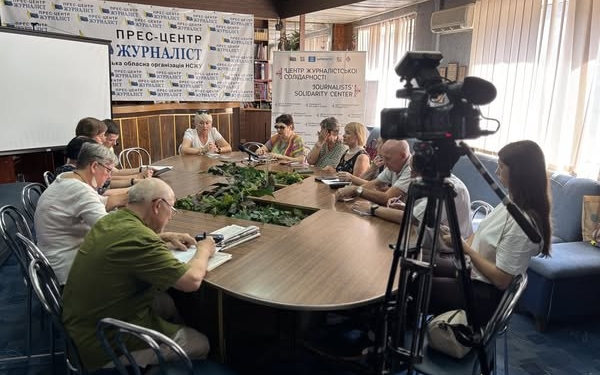
















Discussion about this post